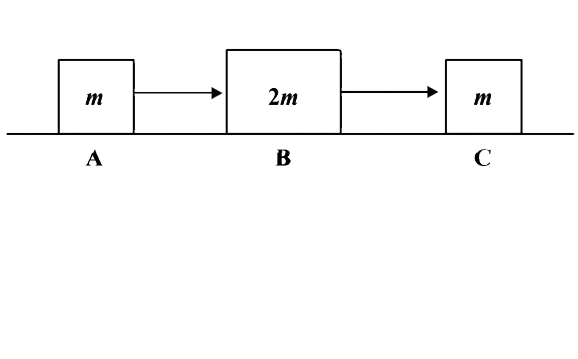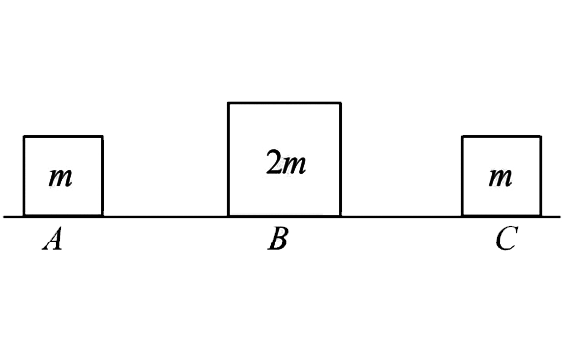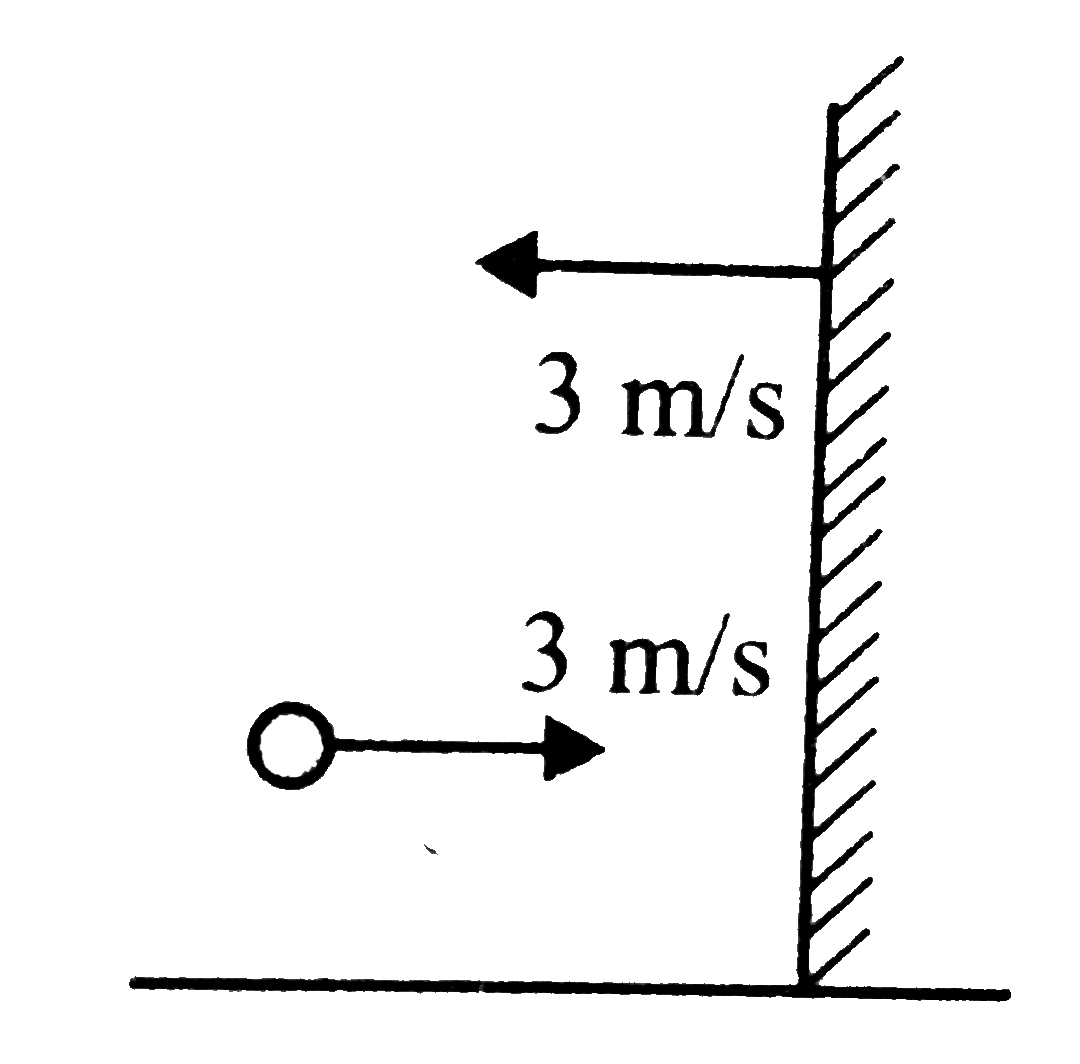There object A,B and C are kept is a straing line a fritionlas horizental surface . These have masses have increase on 2m and m repectively . The object A move toward B with a speed 9 m//s and makes as electic collision with a there after B makes complately inclesis with C . All motion over on the same strangth line . Find the first speed of the object C

The correct Answer is:D
The velocity B just after collision with A is
vg=(mg−mA)ugmg+mA+2mAuAmA+mg

=0+2m×9m+2m=6m/s
The collision between B and C is completely inedasic
∴mgνg=(mg+mC)ν
∴ν=6×2m2m+m=4m/s
Topper's Solved these Questions
Similar Questions
Three masses A, B and C are kept on a smooth horizontal surface as shown in the fiugre. A sharp impulse is given to the mass A, so that it starts moving towards B with speed v0. What is the minimum value of m so that there is only one collision between masses A and B (all collisions are elastic)

View SolutionA ball moving with a speed of 9m/s strikes an identical ball at rest, such that after the collision, the direction of each ball makes an angle of 30∘ with the original line of motion. Find the speeds of the two balls after collision.
View Solution
Knowledge Check
Three objects A ,B and C are kept in a straight line on a smooth horizontal surface. These have masses m, 2m and 3m , respectively . The head - on elastic collision takes place between A and B and then B makes completely inelastic collision with C. All motions occur on the same straight line. The final speed of C will be
 Av015B2v015C3v015D4v015
Av015B2v015C3v015D4v015An object of mass 6 kgis sliding on a frictionless horizontal surface with a uniform speed of 3 m/s. the force required to keep the object moving at the same speed along the same straight line is
A27 NB18 NC54 ND0 NAn object of mass 6 kg is sliding on a frcitionless horizontal surface with a uniform speed of 3 m/s. The force required to keep the object moving at the same speed along the same straight lineis
A27 NB18 NC54 ND0 N
A ball moving with a speed of 9ms−1 strikes an identical ball such that after the collision the direction of each ball makes and angle 30∘ with the original line of motion. Find the speeds of the two balls after the collision.
View SolutionTwo particles A and B of equal size but of masses m kg and 2 m kg are moving directly towards each other with speeds 21 m/s and 4 m/s respectively. After collision, A moves with a speed of 1 m/s in the original direction. Then:
View SolutionAn object of mass m1 moving with speed v collides with another object of mass m2 at rest and stick to it. Find the impulse imparted to the second object.
View SolutionParticle A makes a perfectly elastic collision with another particle B at rest. They fly apart in opposite directions with equal speeds. The ratio of their masses mA/mB is
View SolutionA highly elastic ball moving at a speed of 3m/s approaches a wall moving towards it with a speed of 3m/s. After the collision. the speed of the ball will be

View Solution
